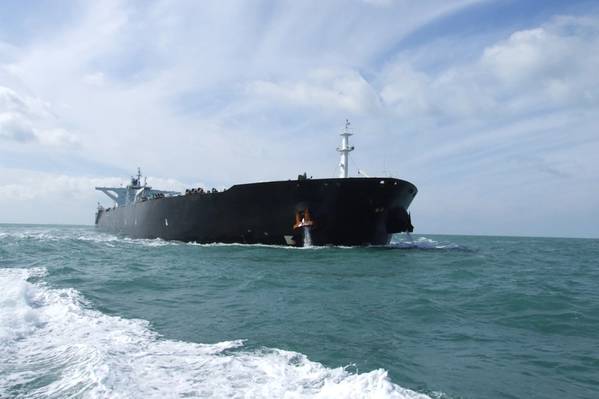
Even as the United States and Iran appear to signal a keenness to avoid further conflict, oil and gas shipowners are bracing to pay a price for the war of words that culminated in rocket strikes in Iraq over the last week - higher insurance bills.
According to industry sources, payments known as war risk premiums for tankers shuttling through the Strait of Hormuz could rise significantly, adding hundreds of thousands of dollars to shipping costs in some cases that will ultimately be passed on to fuel buyers - mostly in Asia.
About 20% of the world's crude oil supply and a quarter of the global supply of liquefied natural gas (LNG) are transported on tankers through the Strait of Hormuz, a narrow passage between the Gulf and the Indian Ocean. Saudi Arabia is the world's biggest crude oil exporter, while Qatar is the top LNG exporter.
"We are obviously concerned with regard to the tension around the wider (Gulf) area," said Svein A Ringbakken, managing director of Norwegian ship insurer Den Norske Krigsforsikring for Skib (DNK) told Reuters. "Ships' transits in these areas have already for some time been subject to additional war risks insurance premiums which may increase in light of the recent developments."
Ship owners pay annual war-risk insurance cover as well as an additional 'breach' premium when entering high-risk areas. These separate premiums are calculated according to the value of the ship, or hull, for a seven-day period.
Ship insurers have quoted the breach rate for 7 days at around 0.35% of insurance costs, up from about 0.15% in December, a London-based shipbroker said.
One Singapore-based LNG shipbroker calculated the extra costs as significant. "Depending on the type of ship, this adds about $150,000 to $200,000 (to overall costs) per trip."
Others in the shipping industry are less concerned about extra financial burdens, saying the current pricing of Gulf risks have already factored in the potential of another attack on merchant shipping and thus may not change - unless the situation worsens.
"For LNG markets, the escalating tensions in the Middle East mean all eyes will be on any risk to passage through the Strait of Hormuz," said Saul Kavonic, analyst with Credit Suisse.
"A prolonged closure of the Strait of Hormuz could see LNG spot prices skyrocket, and see a demand destruction scenario emerge turning the current soft LNG market on its head," he said. Spot Asian LNG prices which are currently languishing at their lowest for this time of the year.
(Reporting by Jessica Jaganathan, Koustav Samanta, Shu Zhang and Jonathan Saul; Editing by Kenneth Maxwell)



